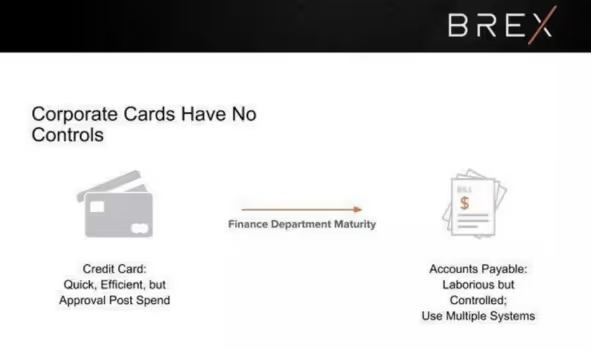Brex 2018 Series B Pitch Deck Audit: A Consultant’s Take
When Brex raised its $125M Series B round in 2018, it was more than just another fintech startup pitch. The company positioned itself as the corporate card built for startups, and in doing so, cracked open an entirely new segment in financial services.
As someone who has spent two decades auditing and designing investor decks, I believe Brex’s 2018 pitch is a masterclass in clarity, positioning, and credibility. Let’s break it down using five key weighted criteria that matter most for fintech decks.
.avif)
1. Problem & Solution Fit (30%)
Brex nailed the pain point right out of the gate: traditional banks don’t understand startups. Getting a corporate card was nearly impossible without years of credit history, yet startups needed fast-moving financial infrastructure.
The solution? Instantly issued credit cards for startups with underwriting based on cash balances, not founder FICO scores.
The simplicity of this framing gave Brex an almost unfair advantage. They weren’t just offering another card; they were solving the trust gap between startups and banks. This sharp articulation of problem–solution fit earned them top marks.
Score: 9.5/10
.avif)
2. Market Opportunity & Timing (25%)
In 2018, venture funding for startups was at record highs, and the ecosystem was bursting with young companies managing millions in fresh capital. Brex timed their entry perfectly.
The pitch deck clearly mapped out the total addressable market (TAM), emphasizing the untapped billions in corporate spend yet to be modernized. What made it stronger was the urgency. Brex wasn’t chasing a trend; they were riding the wave of venture capital’s explosive growth.
Score: 9/10
.avif)
3. Traction, Product & Business Model (20%)
For a Series B, traction is the battlefield. Brex’s pitch showed explosive early adoption, with cards already in the hands of Y Combinator-backed startups with strong transaction volumes.
Their product demo was sleek: instant approval, fast card issuing, integrated spend management. More importantly, they monetized from day one through interchange fees, a familiar model that investors trusted.
The business model was less about reinventing financial revenue mechanics and more about scaling faster than incumbents, a smart choice.
Score: 8.5/10
.avif)
4. Team & Credibility (15%)
In fintech, investors bet as much on compliance credibility as they do on innovation. Brex’s founders, Henrique Dubugras and Pedro Franceschi, were already recognized for building fintech products in Brazil. Pairing youthful vision with heavyweight advisors and regulatory connections was key.
The deck wisely emphasized the combination of engineering strength and financial discipline. This gave investors confidence that Brex wasn’t just another flashy card startup, but one that could survive in the heavily regulated financial world.
Score: 8/10
5. Storytelling & Aesthetics (10%)
Unlike early Airbnb or Dropbox decks, Brex’s 2018 deck felt slick, minimal, and modern, almost as if designed for fintech investors’ attention spans.
It avoided clutter, used crisp data visualizations, and built a narrative arc that started with the problem founders faced and ended with Brex as the inevitable solution. The delivery wasn’t theatrical; it was surgical.
Score: 9/10

Why Brex’s Pitch Worked
The Brex 2018 Series B pitch deck was powerful because it sat at the intersection of timing, credibility, and product clarity. It won investor confidence by showing not only why startups needed Brex, but also why Brex could scale faster than legacy banks could adapt.
Weighted Scorecard
- Problem & Solution Fit: 30% - 9.5/10
- Market Opportunity & Timing: 25% - 9/10
- Traction, Product & Business Model: 20% - 8.5/10
- Team & Credibility: 15% - 8/10
- Storytelling & Aesthetics: 10% - 9/10
Overall Score: 9/10
Where Brex Stands Today
Fast forward to today, Brex has become a fintech powerhouse, expanding from startup corporate cards to expense management, bill pay, and global financial platforms. Their bold moves, like exiting SMBs to double down on enterprise, show that the same clarity and courage from their Series B pitch are still alive in their strategy.
If there’s one lesson founders should take from Brex’s 2018 deck, it’s this:
Investors don’t just fund great products. They fund great timing paired with undeniable clarity.



